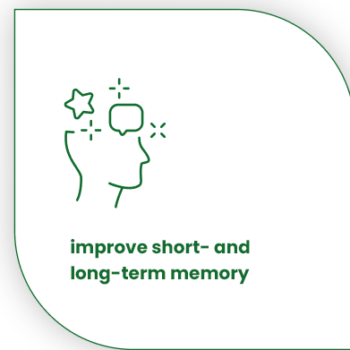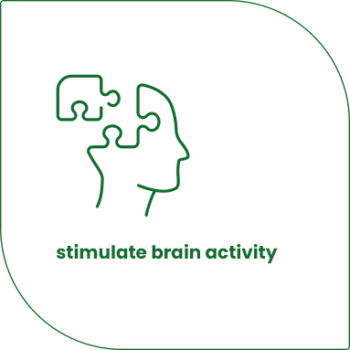Ta strona korzysta z ciasteczek, aby zapewnić Ci najlepszą możliwą obsługę. Informacje o ciasteczkach są przechowywane w przeglądarce i wykonują funkcje takie jak rozpoznawanie Cię po powrocie na naszą stronę internetową i pomaganie naszemu zespołowi w zrozumieniu, które sekcje witryny są dla Ciebie najbardziej interesujące i przydatne.

Forgetting to forget
The dietary supplement BetulaForte has been created with the idea of
BetulaForte is designed to comprehensively support your intellectual performance and improve your brain function. It is perfect if you want to improve your brain’s cognitive functions, if you have a job requiring concentration, if you have problems with memory and concentration.
It is also an indispensable support if you suffer from dementia.
We have developed the Betula Forte dietary supplement to comprehensively support intellectual performance and improve your brain function.

Betulin (from the Latin Betula) is a chemical compound naturally found in birch bark, giving it its proper white hue. As a substance, it is in the form of a white or almost white crystalline powder. The properties of betulin were known as far back as the Middle Ages, and this is confirmed by descriptions of the properties of medicinal products available in European medical books. Plants containing betulin were used in natural medicine and herbal medicine not only in Europe, but also in North America.
The main use of birch bark extract has been in the treatment of tuberculosis and diseases of the lymphatic system. Currently, betulin has also been shown to support the course of neurodegenerative diseases – Alzhaimer. In addition, it is credited with many health-promoting properties, including anti-allergic, anti-inflammatory, anti-tumour, anti-viral, hepatoprotective and anti-cancer properties.
For whom?
Betula Forte for people who want to…






Assistance for people
with Alzheimer’s disease
Alzheimer’s disease is a type of dementia caused by damage to the brain. Since 1999, World Alzheimer’s Day has been celebrated on 21 September, and the whole month of September is a time when doctors, but also relatives of patients and the patients themselves, try to draw the attention of healthy people to this disease, which is affecting more and more people.
FAQ
Frequently asked questions
Neurodegenerative diseases are incurable and very debilitating diseases that lead to the progressive degeneration (degeneration, deformity) and/or death of nerve cells. The result is problems with movement (ataxia) and/or reduced mental performance (dementia). Neurodegenerative diseases include Alzheimer’s disease and other types of dementia, Parkinson’s disease, amyotrophic lateral sclerosis, Huntington’s disease, spinal-cerebellar ataxia.
In Alzheimer’s disease, the energy metabolism of the brain as well as the structure and function of the neuronal cell membrane are significantly impaired, which is a prerequisite for maintaining synaptic plasticity and preventing cell death. The formation and
maintenance of neuronal cell membranes is a dynamic process that is largely dependent on diet. For example, phosphatidylcholine is an important phospholipid in nerve cell membranes, and its synthesis in the brain requires choline, uridine and polyunsaturated
fatty acids (PUFAs) [such as docosahexaenoic acid (DHA)], which mainly come from the diet. Choline is also required for the synthesis of neurotransmitters. Dietary composition is therefore critical for maintaining neuronal structure and function. ω-3 unsaturated fatty acids, especially DHA, directly mitigate β-amyloid precipitation in the brain or indirectly by increasing α-secretase hydrolysis. Good dietary patterns can prevent neurodegeneration and thus the onset of Alzheimer’s disease, reduce oxidative stress
oxidative stress and inflammation. Diets that may contribute to maintaining normal CNS cognitive and cognitive function are the Mediterranean diet, the DASH and MIND diets, and the ketogenic diet.
In any illness, caring for a sick person is a difficult and demanding task. It is very important for carers to have a thorough understanding of the disease, the symptoms and the course of the disease. In the case of progressive Alzheimer’s disease, the patient loses contact with reality and it is difficult to communicate. it is difficult to communicate with them. This is a difficult situation for both parties (patient and carer) and can sometimes turn, unfortunately, into mutual frustration. As the disease progresses, patients become almost completely dependent on other people and require round-the-clock care. Therefore, being a carer for a person with Alzheimer’s disease involves a great deal of effort, both mentally and physically, as well as restrictions on social life. It is therefore crucial that carers, in addition to acquiring knowledge about the disease, its symptoms and course, and complications, they should be able to take care of their own needs. Usually, the care of a person with the disease is shared by the whole family, which gives carers the opportunity to have their own life and time for themselves. In Poland, there are also associations and organisations that support both the patient and the sometimes powerless family. They help patients and their carers cope with the various aspects of the illness and the care of the patient.
The BetulaForte dietary supplement treatment should be used for at least 6 months, a break of 1-3 months can be taken. The longer the use, the better and more visible the effects should be.
As much as possible, betulin has no documented side effects, the dosage in the supplement is safe, betulin does not react with other compounds.
Birch extract is commercially available.
It is possible to pour out of a capsule, but a better form of administration would be a fruit mousse, or possibly a runny jelly. The idea is to create a suspension.

Dietary supplement. Contains ingredients that support body functions by supplementing the normal diet. It has no medicinal properties.



